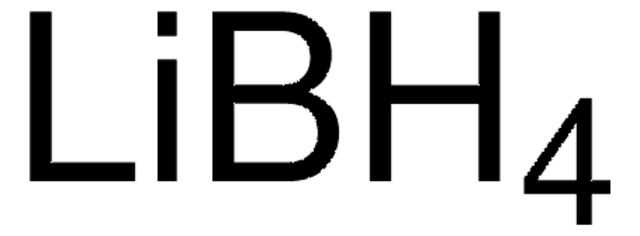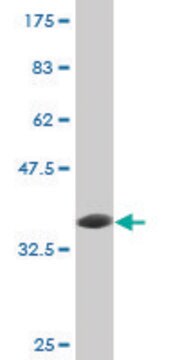ZRB2051
Anti-ATF3 Antibody, clone 1G12 ZooMAb® Rabbit Monoclonal

recombinant, expressed in HEK 293 cells
Synonim(y):
Cyclic AMP-dependent transcription factor ATF-3;cAMP-dependent transcription factor ATF-3;Activating transcription factor 3
About This Item
Polecane produkty
pochodzenie biologiczne
rabbit
Poziom jakości
rekombinowane
expressed in HEK 293 cells
białko sprzężone
unconjugated
forma przeciwciała
purified antibody
rodzaj przeciwciała
primary antibodies
klon
1G12, recombinant monoclonal
opis
1G12 Clone
linia produktu
ZooMAb® learn more
Postać
lyophilized
masa cząsteczkowa
calculated mol wt 20.58 kDa
observed mol wt ~45 kDa
oczyszczone przez
using Protein A
reaktywność gatunkowa
rat, human, mouse
opakowanie
antibody small pack of 25 μL
charakterystyka ekologicznej alternatywy
Waste Prevention
Designing Safer Chemicals
Design for Energy Efficiency
Learn more about the Principles of Green Chemistry.
rozszerzona walidacja
recombinant expression
Learn more about Antibody Enhanced Validation
sustainability
Greener Alternative Product
metody
ELISA: suitable
affinity binding assay: suitable
immunocytochemistry: suitable
immunohistochemistry (formalin-fixed, paraffin-embedded sections): suitable
western blot: suitable
izotyp
IgG
sekwencja epitopowa
C-terminal half
numer dostępu Protein ID
numer dostępu UniProt
kategoria ekologicznej alternatywy
Warunki transportu
ambient
temp. przechowywania
2-8°C
docelowa modyfikacja potranslacyjna
unmodified
informacje o genach
human ... ATF3(467)
Powiązane kategorie
Opis ogólny
Specyficzność
Immunogen
Zastosowanie
Evaluated by Western Blotting in NIH3T3 cell lysate.
Western Blotting Analysis: A 1:10,000 dilution of this antibody detected ATF3 in NIH3T3 cell lysate.
Tested Applications
Western Blotting Analysis: A 1:10,000 dilution from a representative lot detected ATF3 in lysates from A549, HeLa, and C6 cells and recombinant Human ATF3.
Immunocytochemistry Analysis: A 1:100 dilution from a representative lot detected ATF3 in A431 cells.
Enzyme Immunoassay (ELISA) Analysis: Various dilutions of this antibody detected recombinant Human ATF3.
Immunohistochemistry (Paraffin) Analysis: A 1:100 dilution from a representative lot detected ATF3 in human prostate tissue sections.
Affinity Binding Assay: A representative lot of this antibody bound His-tagged recombinant Human ATF3 with a KD of 9.7 x 10-7 in an affinity binding assay.
Note: Actual optimal working dilutions must be determined by end user as specimens, and experimental conditions may vary with the end user.
Opis wartości docelowych
Postać fizyczna
Rekonstytucja
Przechowywanie i stabilność
Informacje prawne
Oświadczenie o zrzeczeniu się odpowiedzialności
Not finding the right product?
Try our Narzędzie selektora produktów.
Kod klasy składowania
11 - Combustible Solids
Klasa zagrożenia wodnego (WGK)
WGK 1
Temperatura zapłonu (°F)
Not applicable
Temperatura zapłonu (°C)
Not applicable
Certyfikaty analizy (CoA)
Poszukaj Certyfikaty analizy (CoA), wpisując numer partii/serii produktów. Numery serii i partii można znaleźć na etykiecie produktu po słowach „seria” lub „partia”.
Masz już ten produkt?
Dokumenty związane z niedawno zakupionymi produktami zostały zamieszczone w Bibliotece dokumentów.
Nasz zespół naukowców ma doświadczenie we wszystkich obszarach badań, w tym w naukach przyrodniczych, materiałoznawstwie, syntezie chemicznej, chromatografii, analityce i wielu innych dziedzinach.
Skontaktuj się z zespołem ds. pomocy technicznej





